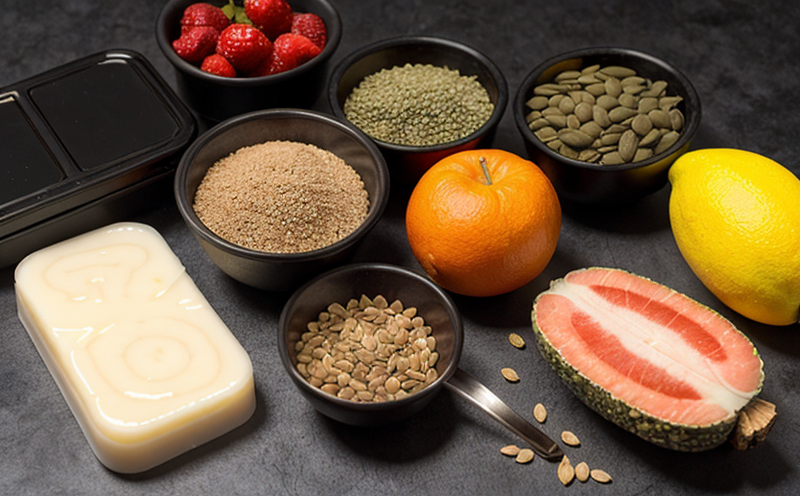ISO 27107-2 Determination of Sugars in Processed Dairy Products
The determination of sugars in processed dairy products is critical for ensuring product quality and safety. The standard method for this analysis, ISO 27107-2, provides a robust approach to accurately quantify the sugar content in various dairy products undergoing processing or modification.
This process involves several key steps which are crucial for achieving reliable results:
- Sample Preparation: Proper sample preparation is essential. Samples must be homogenized to ensure uniformity, and any contaminants should be minimized to avoid interference with the analysis.
- Liquid Chromatography: Following extraction, liquid chromatography techniques are used to separate different sugars present in the sample. This step ensures precise identification of each sugar type.
- Detection and Quantification: The separated sugars undergo detection using appropriate detectors such as refractive index or UV-Vis spectrophotometry. Calibration curves generated from standard solutions allow for accurate quantification.
The importance of this testing cannot be overstated, especially in the context of processed dairy products where sugar content can significantly influence taste, texture, and overall consumer satisfaction. Compliance with international standards like ISO 27107-2 ensures that the results are reliable, repeatable, and internationally accepted.
The accurate quantification of sugars is also pivotal for quality control purposes, enabling manufacturers to meet nutritional labeling requirements accurately. Misreporting sugar content can lead to regulatory issues, consumer distrust, and potential health risks if products do not meet expected caloric or carbohydrate levels.
Furthermore, understanding the sugar composition helps in optimizing processing conditions to enhance product quality while maintaining safety standards. This information is particularly valuable for R&D teams working on new formulations or process improvements aimed at creating healthier dairy alternatives without compromising flavor and texture.
Benefits
The implementation of ISO 27107-2 offers numerous advantages to food processors, especially those in the dairy sector:
- Achieving Regulatory Compliance: By adhering to this internationally recognized standard, companies ensure that their products meet all relevant legal and regulatory requirements.
- Enhancing Product Quality: Precise sugar content measurements contribute to maintaining consistent product quality across batches, which is crucial for brand reputation and customer satisfaction.
- Informed Decision-Making: Understanding the exact sugar composition allows manufacturers to make informed decisions about ingredient sourcing and processing methods, leading to more efficient operations.
- Cutting Costs: Accurate quantification can help identify unnecessary over-processing steps or wasteful practices, thereby reducing production costs without sacrificing quality.
Eurolab Advantages
EuroLab stands out as a leader in nutritional composition testing services for processed dairy products. Our expertise lies not only in providing accurate and reliable results but also in ensuring that these results are delivered efficiently and cost-effectively.
- State-of-the-Art Equipment: We utilize cutting-edge analytical instruments to perform the ISO 27107-2 test, guaranteeing high precision and accuracy in every measurement.
- Experienced Technicians: Our team comprises highly trained professionals who possess extensive experience in food safety analysis, ensuring that each sample is handled with utmost care and attention to detail.
- Comprehensive Reporting: Beyond just numerical data, our reports offer valuable insights into the broader implications of sugar content on product formulation, helping clients make strategic business decisions.
- Fast Turnaround Times: We understand that timely results are crucial for effective decision-making. EuroLab prides itself on quick turnaround times without compromising quality or accuracy.





